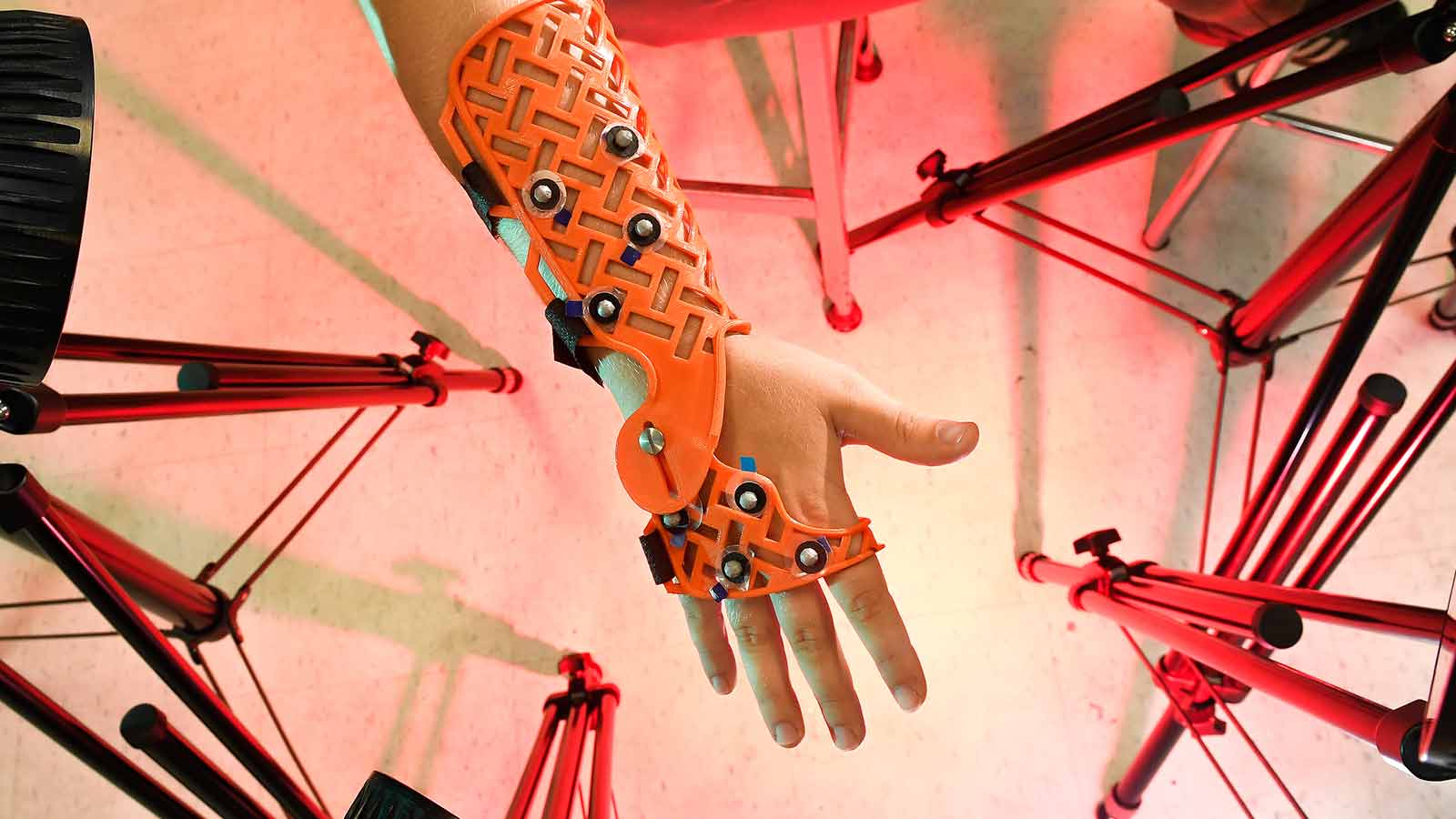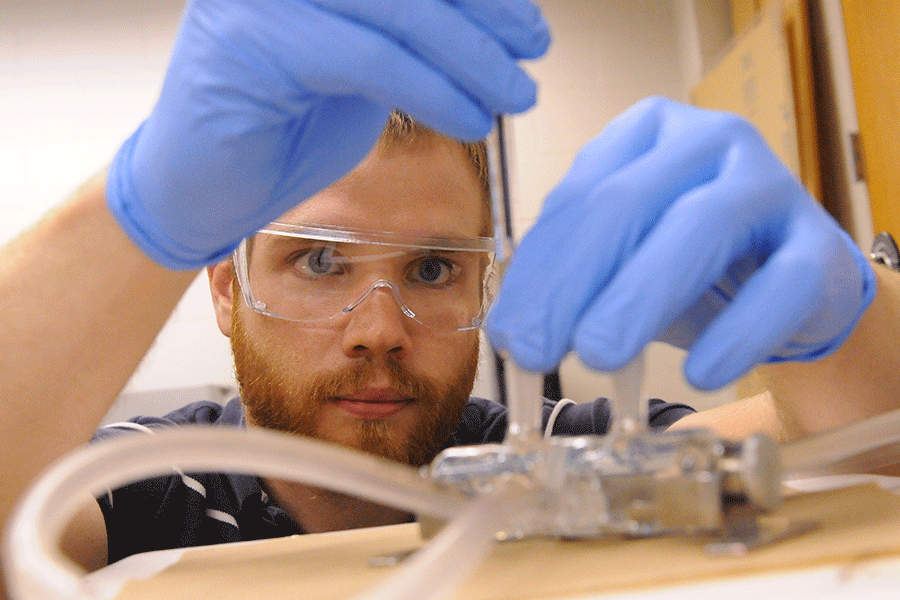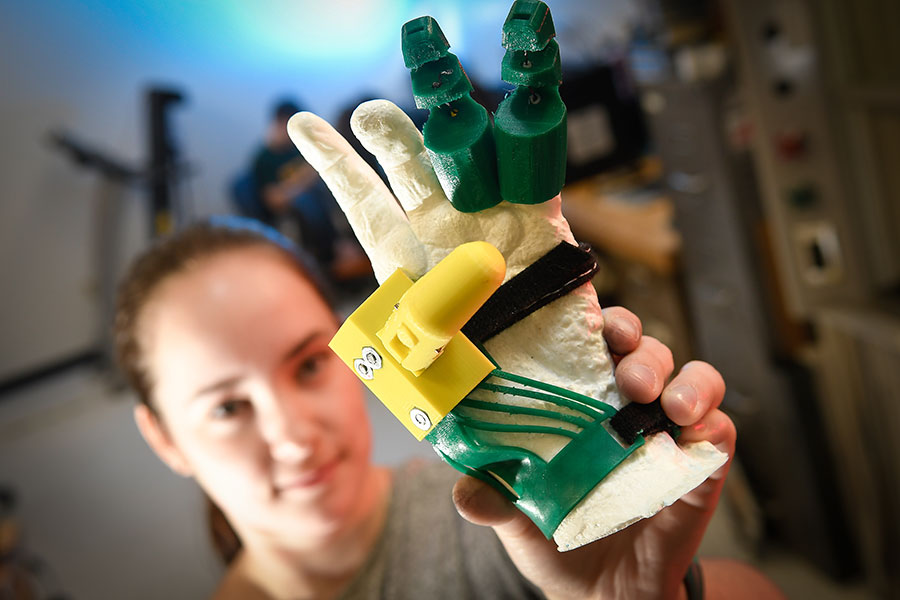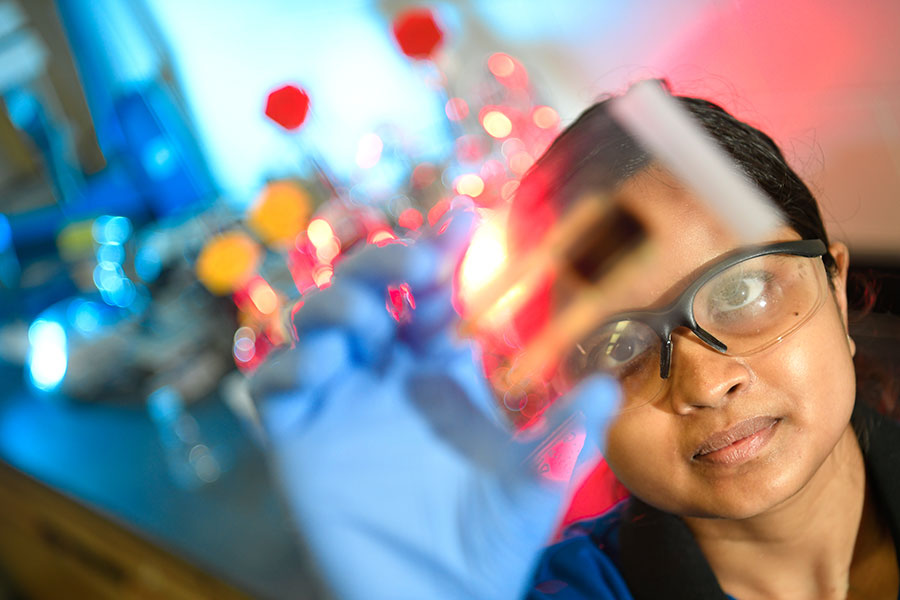Center for Rehabilitation Engineering, Science & Technology (CREST)

I'm grateful for many things during my time at Clarkson, but the CREST lab is undoubtedly at the top of that list. I had taken many research and undergrad lab courses; however, the CREST lab allowed me to apply my engineering knowledge to investigate and solve complex biomedical problems. CREST connected the dots between many of my previous classes and taught me how to implement the short- and long-term goals needed to complete high-level research studies.
Austin Marshall '20 BS in Biochemistry, PhD candidate in Bioscience and Biotechnology
Research Focus
CREST's focus is spread across the Coulter School of Engineering and Applied Sciences and the Lewis School of Health and Life Sciences.

Current Areas of Research
Areas of research include:
- Neural engineering
- Biomolecular engineering
- Biosensors
- Biosignal processing
- Computational biology
- Biomaterials
- Bioinformatics
- Biometrics
- Bio-entrepreneurship
- Tissue Engineering and Regenerative Medicine

Rehabilitation Engineering
Rehabilitation engineering spans the entire engineering and research spectrum:
- From basic science to mathematical models and sophisticated simulations/analyses.
- From device design to clinical trials.
- From mechanical, electrical, industrial and materials engineering to industrial design.
- From measurement theory to human factors and quality control.
- From clinical practice to the socioeconomic worth of technology.

Biomedical Engineering, Biomedical Science and Bio-Entrepreneurship
Our biomedical engineering/biomedical science focus leads to a unique and synergistic approach, especially when entrepreneurship is added as a key ingredient.
- We focus on current science, engineering, technology and the marketplace.
- Students at Clarkson receive sought-after cross-disciplinary training.
- CREST is a university-wide endeavor, crossing the purview of all the major schools and centers.
- Bio-entrepreneurship partners engineering senior design capstone courses with the Reh School of Business.
My most defining experience at Clarkson has been my engagement in the labs. I was given the opportunity to both participate in and lead research that furthered my understanding of my chosen topics. I was able to get hands-on project design exposure to real-world problems in both my graduate and undergraduate careers. Not only did this educate me, it also allowed me to directly contribute to my field of interest.
Camilla Ketola '21, BS in Biology, BS in Computer Engineering MS Candidate in Electrical Engineering
